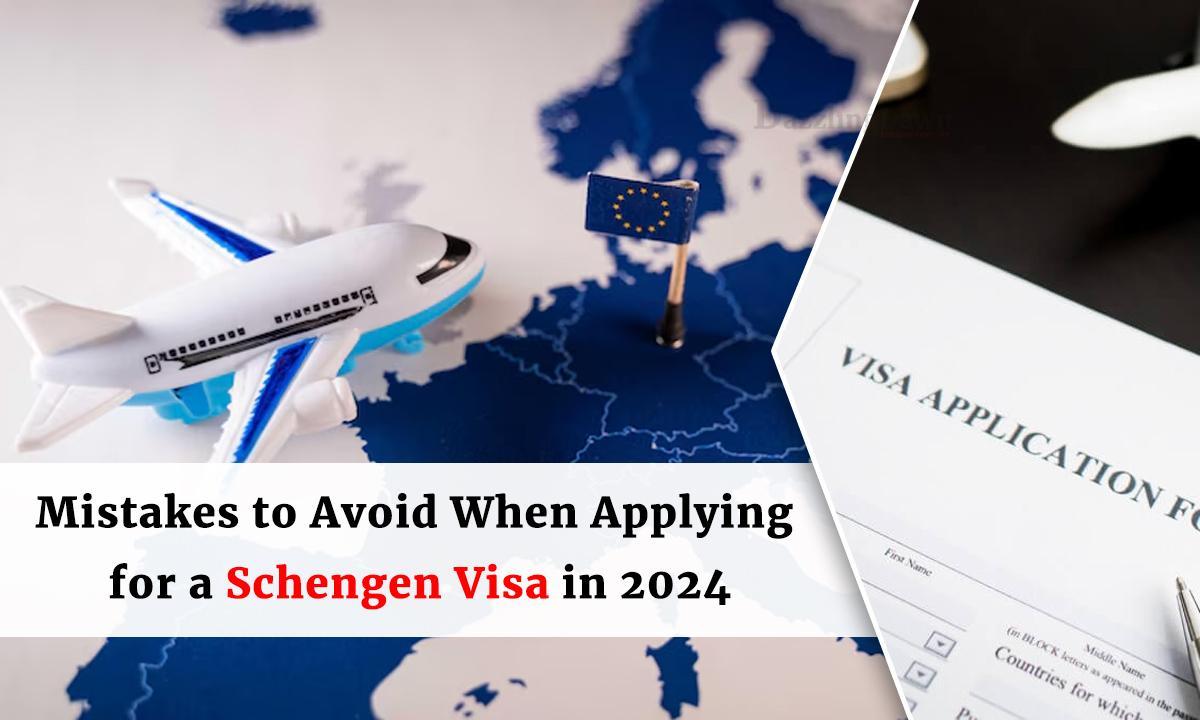As it has never been simple, applying for a Schengen visa in 2024 is not an easy procedure. Getting a lot of paperwork together, showing up for an interview, and paying a fee are all part of the application process.
The fee of a Schengen visa increased from €80 to €90 as of June 11, 2024.
However, many people may make the process of obtaining a visa easier if they simply pay attention to a few extremely common errors that typically result in an application being rejected.
Most of the time, these mistakes are made due to lack of knowledge, or the applicant not understanding the importance of the documents meeting the criteria set by the Schengen country they wish to visit.
Below is a compilation of these common errors. By avoiding them and ensuring your application file complies with Schengen authorities’ criteria, you can greatly increase your chances of obtaining a Schengen visa.
1. Collecting the Required Documents
There are numerous instances where the paperwork needed for a Schengen visa varies from one nation or embassy to another. Additionally, Schengen Area embassies around the world regularly evaluate and update the requirements for visas.
Individuals who simply take a friend's or family member's random list and begin gathering the necessary documents based on it frequently make the error of omitting important documents that are now required or documents that are required in accordance with newly introduced criteria.
It is recommended that all applicants for a Schengen visa gather the necessary paperwork according to the list released by the embassy of the nation in which they plan to submit their application.
2. Passport Does Not Meet the Requirements
Having a passport that has some several more months of validity left is not enough, and some travellers have learnt it the hard way.
The EU has specific and strict passport rules for those applying for a Schengen visa, as follows:
The passport must be valid for six more months beyond the date of their planned trip to the Schengen Area.
The passport must have been issued in the last ten years on the date the passport holder plans to leave the Schengen country he or she is visiting.
The passport must have at least two blank pages, but they must not be added later to the passport.
Those who fail to meet any of these rules, are rejected from getting a visa.
In addition, travellers planning to get a visa with the multiple entry option, for periods of three or five years, must be aware that if the validity of their passport is shorter than the period of validity of the required visa, then they will not be getting the latter.
Instead, in most occasions, they will get a visa valid for shorter period of time, before the expiration of their passport.
3. Filling the Application Form With Info That Doesn’t Align With Other Documents
It is required of all travellers to complete the SchengenVisaInfo application form (which can be downloaded). The first document that is needed is this one. A common error made by travellers is to enter information on the application form that differs from that on other documents.
Some applicants state in their application that their passport is valid for a longer period of time than, say, six more months. On other instances, they specify a different date range for the necessary visa validity than the periods they have travel insurance or lodging.
Such errors, especially those committed on purpose, may automatically lead to the application for a visa being denied.
4. Doesn’t Have Travel Insurance
It's a grave error to decide against purchasing travel insurance because you believe "nothing's going to happen to me." The embassy doesn't give a damn whether you never get sick or take great care to avoid mishaps. Everybody must have Schengen travel insurance with at least €30,000 in coverage, which includes repatriation in the event of death.
Frequently, individuals get travel insurance with less coverage than necessary or for a shorter duration than they intend to spend in the EU.
The need for travel insurance is deemed to be broken if the policy does not cover repatriation in the event of death, regardless of how much it covers other accidents.
5. Submitting an Application Too Early or Too Late
The Schengen Visa Code governs when applications must be submitted, just like it does everything else. It states that you can submit an application up to six months in advance of your planned travel and up to fifteen working days in advance.
Even in extremely busy embassies, trying to file an application one year in advance is not likely to work smoothly.
The same applies to late application filing. Individuals who believe that filing their visa application later won't make much of a difference and have previously received a visa from a specific embassy in as little as five days run the danger of having their application denied altogether or delayed.
Thus every traveller must make sure that he or she is submitting the application well in advance, but not earlier than six months before their planned trip.
6. Applying at the Wrong Embassy/Consulate/Visa Centre
Applying at the incorrect embassy is another very common error made by persons who intend to visit many Schengen Area countries with a single visa.
In cases when one wishes to visit two or more countries in the Schengen Area with the same visa in an uninterrupted trip, the application should be submitted as follows:
At the embassy of the country you will visit first, if you are planning to stay in each country for an equal amount of days. I.e. if you are planning to stay five days in Austria, five days in Germany, and five days in France, but you will enter the Schengen Zone through Austria, then you should submit you application at the Austrian embassy.
At the embassy of the country you will stay the longest, if you are planning to stay in each country a different amount of days. I.e. if you are planning to stay three days in Austria, five days in Germany, and seven days in France, then you should submit you application at the French embassy.
7. Not Bringing Cash to Pay the Application Fee
While it might not result in the rejection of your visa, this error could nonetheless put you in needless difficulties.
Many people assume they can pay the Schengen visa fee with a card or online, so they don't bring cash on the day of the interview. This isn't feasible because all embassies, consulates, and visa application centres demand that applicants have the precise amount in cash needed for a visa.
It could also be problematic to try to pay with large banknotes, especially if you are one of the first applicants of the day. To save any headaches, it is best for each applicant to know the precise amount.








.svg)


_2.jpg)